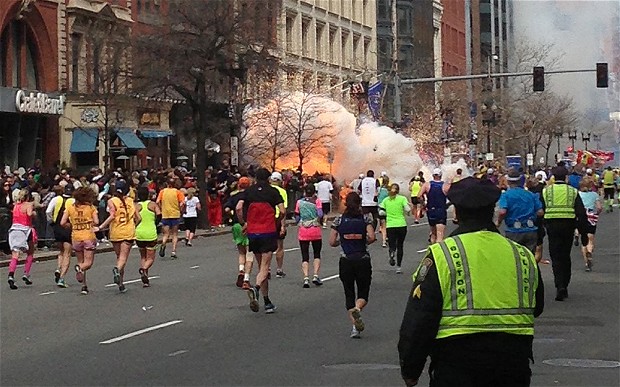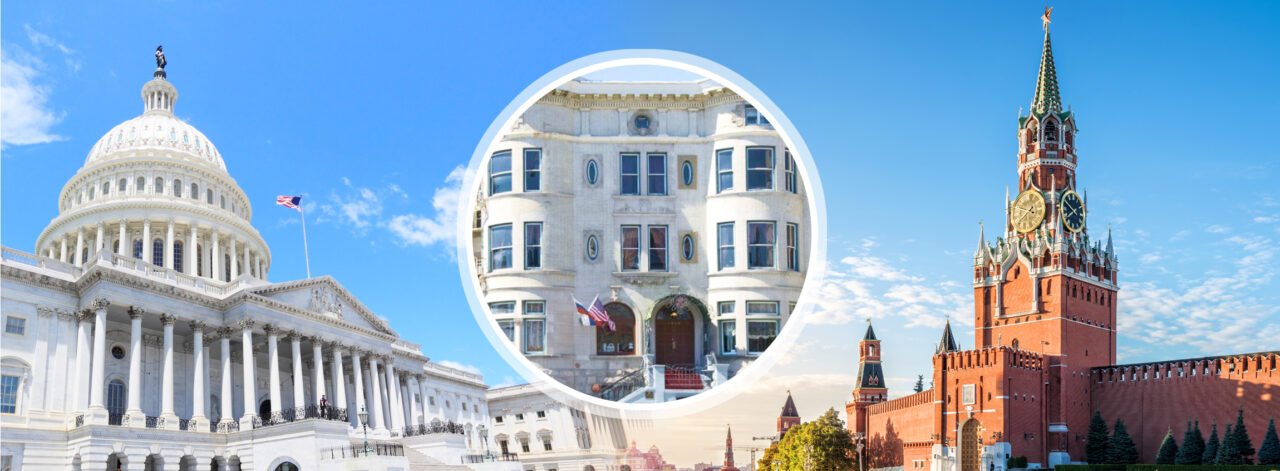
 Members of a Congressional delegation visiting Moscow to investigate the background of the Boston Marathon bombing suspects said Sunday that the attack might have been prevented by greater cooperation between the United States and Russia on intelligence issues and counterterrorism efforts.
Members of a Congressional delegation visiting Moscow to investigate the background of the Boston Marathon bombing suspects said Sunday that the attack might have been prevented by greater cooperation between the United States and Russia on intelligence issues and counterterrorism efforts.But the lawmakers said they could not point to any specific misstep by the American or Russian intelligence services, and they did not offer any new insights into what motivated the suspects, two brothers with family ties in Russia’s North Caucasus, to commit the attack.
"Yes, it could have been averted,” said Representative Dana Rohrabacher, Republican of California, who led the delegation and is the chairman of the House Foreign Affairs Subcommittee on Europe, Eurasia and Emerging Threats. "Not just by one mistake by the United States or one mistake made over here in Russia, but instead by making sure that both countries were working together on a much higher level.”
The six-member delegation received a rare high-level briefing at the headquarters of the Russian Federal Security Service, known as the F.S.B., in which they were told about the agency’s efforts to warn the American authorities about the older suspect, Tamerlan Tsarnaev, and his mother, Zubeidat Tsarnaeva, and the likelihood that they harbored extremist views.
The lawmakers praised the cooperation they received from Russian authorities but said that they had been unable to get an answer to a question about the circumstances of Mr. Tsarnaev’s return to the United States after a six-month visit last year to the southern republic of Dagestan in the Caucasus.
They said Russian officials confirmed reports that Mr. Tsarnaev left Dagestan two days after an acquaintance, who was a member of a Muslim rebel group, was killed during a security operation. But the lawmakers said that the Russian authorities could not tell them when Mr. Tsarnaev had purchased his plane ticket or whether he had left in a rush, fearing for his life.
"You wonder, was that a cause and effect, but nobody here seems to have thought about that,” said Representative Steve Cohen, Democrat of Tennessee, a member of the delegation.
Mr. Rohrabacher, speaking at a news conference at the American Embassy here, said that he had no reason to conclude that the Federal Bureau of Investigation or the Obama administration had mishandled the warnings from Russia. Rather, he said, the relationship with Russia in general should have been stronger.
"I can’t blame them for not doing right within the context of the status quo, but these are people who are supposed to be changing and trying to reform the status quo,” Mr. Cohen said of the administration. "And I would blame them for that. I would say both the Obama administration as well as the Republican administration before Obama — that we have allowed attitudes, maybe the attitudes from the cold war, to remain in place that have prevented a level of cooperation that is justified.”
In his criticism of both Republicans and Democrats, and his calls for much closer collaboration with the Russians, potentially including joint military exercises, Mr. Rohrabacher strayed far from his own party’s traditional distrust of the Kremlin. And he said that President Vladimir V. Putin had been unfairly maligned in the United States.
"Everything that the Russians do that can be described in sinister words and anything that Mr. Putin does that can be described in sinister words are described in sinister words in the United States,” he said.
After Mr. Cohen took a moment to criticize Russia for its prosecution of members of Pussy Riot, the band that carried out a "punk prayer” protest in Moscow’s main cathedral, Mr. Rohrabacher said he disagreed.
Representative Steve King, Republican of Iowa, also said the prosecution seemed justified. "If anyone came into my church,” Mr. King said, "and did that, it would be difficult for me to stand up and say they had a human right to do that.”
Adding an odd celebrity touch, the action-film star Steven Seagal, who has a following in Russia, joined the lawmakers. Mr. Seagal helped to arrange meetings and even offered to take the lawmakers to Chechnya to meet its leader, Ramzan Kadyrov, who has been accused of human rights abuses.
The Chechnya visit was called off for logistical reasons, but Mr. Rohrabacher thanked Mr. Seagal, saying he had been instrumental in securing some meetings, including one with Dmitry Rogozin, a deputy prime minister. "I don’t know that he would have been available to us if not for Steven’s role,” Mr. Rohrabacher said.
Mr. King said that America and Russia could be formidable partners in fighting terrorism.
"If Americans and Russia can conquer space together, we can defeat radical Islam together,” he said, "and that’s why I came here, to advance that.”



_jpg/250px-ElbeDay1945_(NARA_ww2-121).jpg)







